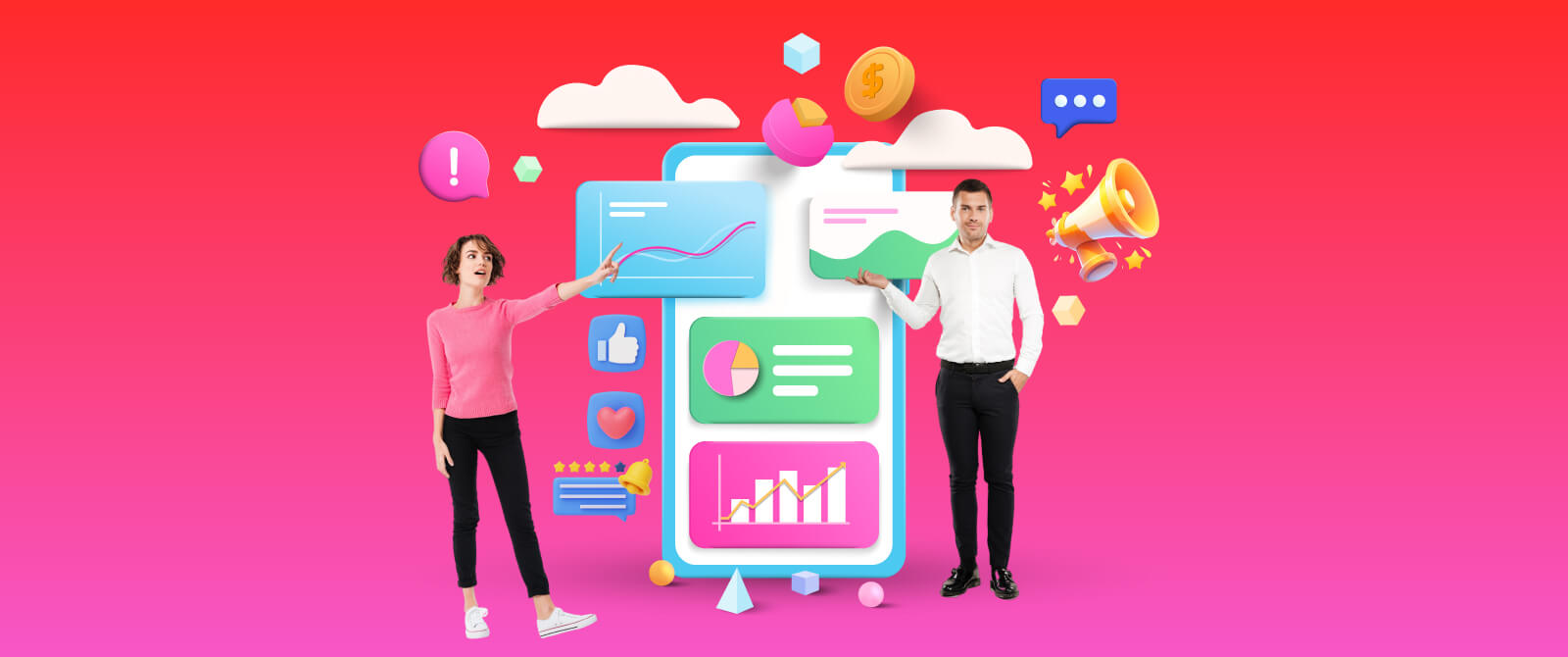Over the years, the event industry has gone through lots of transformations, all driven by the rapid pace of technological advancements, digitalization in marketing, and event tech solutions’ introduction. All of these combined have changed the way events used to be organized, promoted and how attendees engage. In today’s age, to stay ahead of the competition, every event organizer needs to leverage the digitalization of marketing for the event.
Furthermore, implementing various outreach strategies to make you stand out and attract more participants is nowadays becoming challenging. Also, to evaluate the effectiveness of your marketing campaign and performance metrics is similarly tough. That is where digitalization comes into play. By utilizing digital tools in your event marketing efforts, all can be efficiently done, and can be assured that efforts reach your target audience. For example, your event microsite can serve as a valuable asset in directing prospective attendees to your in-person, virtual, or hybrid events. However, if you fail to seek digital marketing tactics such as; search engine optimization (SEO), pay-per-click (PPC) advertising, or email marketing, then you may still be lagging behind your competitors.
What Does Digitalization in Marketing for Events Mean?
Digitalization in marketing for events refers to the strategic use of online channels and technology to manipulate the promotion and management of events. This also involves accessing different tools and platforms in order to get a larger audience, increase attendance, and improve the overall experience for attending guests. Digitalization in event marketing includes establishing a strong online presence, employing social media channels, launching email marketing campaigns, increasing search engine visibility as well as creating event-specific content. It also encompasses analytics and data-based insights that are used to track the success of digital campaigns, measure their results, and provide information about future events.
Importance of Digitalization in Marketing for Events
In today’s fast-paced and technology-driven world, the digitalization of marketing has become a pivotal aspect of event planning and execution. Here’s a closer look at why digitization is crucial for events, whether they are hybrid, virtual, in-person, conferences, trade shows, expos, fairs, or job fairs.
Enhancing Attendee Engagement
Mobile event apps and interactive platforms, for example, immensely enhance attendee engagement as they keep attendees updated on real-time changes, event schedules, provide networking opportunities and have features that can be used in interaction such as live polls and Q&A sessions. Such attendees can schedule their own activities at any time to participate actively and become more involved in the event which makes them feel better about it.
Expanding Reach and Accessibility
The issue of geographic boundaries is not a problem anymore with the advent of hybrid and virtual events since digitalization makes it possible for organizers to reach audiences around the world enabling participants to join from any location across the globe. Apart from increasing attendance this inclusiveness will ensure that people from different backgrounds come together for an enriching experience.
Streamlining Operations and Efficiency
Digital solutions simplify processes involved in registering people for an event or allowing them into a venue. Online registration platforms, check-ins based on QR codes, as well as onsite printing systems for badges reduce time spent on manual activities. This reduces time required by organizers to concentrate more on content creation with increased interactions between guests therefore enhancing the global quality of the meeting.
Data-Driven Decision Making
This allows organizers to track attendee behavior, levels of engagement as well as feedback given by analyzing valuable data available online. This data helps in making informed decisions, refining strategies, and improving future events. Analytics can identify popular sessions, measure ROI, and understand attendee preferences, leading to more targeted and effective marketing efforts.
Personalized Marketing and Communication
Digital tools allow for personalized marketing strategies. By using AI and machine learning, organizers can tailor communication based on attendee preferences and behavior. Customized emails, targeted advertisements, and personalized content create a more engaging and relevant experience for attendees.
Cost-Effectiveness and Sustainability
Another cost-saving opportunity that digital marketing offers is that it does not require printed materials like brochures or posters hence leading to significant reduction in expenditure. Moreover, this move towards reliance on digital tools promotes sustainability through reducing waste production as well as lowering the carbon footprint of an event. This aspect of sustainability has become increasingly important for organizers who are becoming more aware of environmental impacts.
Enhancing Networking Opportunities
In addition, digital platforms facilitate better connectivity via AI-driven matchmaking services; virtual meet-ups; one-on-one video conferences. Attendees can easily connect with peers, industry leaders, and potential partners, fostering valuable relationships that extend beyond the event.
Flexibility and Adaptability
Digitalization offers the flexibility to adapt to unforeseen circumstances. For instance, if an in-person event faces disruptions, it can quickly pivot to a virtual format. This adaptability ensures continuity and minimizes the risk of cancellations, maintaining engagement and satisfaction among attendees.
Key Trends in Digitalization of Marketing for Events
Trends keep changing and to keep an eye is a sign of a good event planner. Here we have mentioned the timeless trends that go perfectly. So, explore;
Hybrid Events
In the modern day, hosting in-person events and attracting audiences from all demographics is a bit of a tough challenge. Also, it incurs a lot of costs in traveling, accommodation to travel just for an event to attend. So, by hosting hybrid events the host can give flexibility to attendees to choose whether they want to attend it virtually (anywhere in the world) or in-person. This trend is driven by the need for more accessible and inclusive events.
Virtual and Augmented Reality
VR & AR is not a very new thing, yet it is highly anticipated and in recent years there have been a lot of developments made. In order to create a more immersive experience the technologies can be leveraged. As this provides simulated real-world environments and offers interactive experiences, and enhances the overall event experience.
Social Media Integration
Social media platforms are being used to promote events, engage with attendees, and measure the success of events. Event marketers are leveraging social media to create buzz around events, share updates, and encourage attendees to share their experiences.
Data Analytics
Data analytics is being used to measure the success of events, track attendee engagement, and optimize event strategies. Event marketers are leveraging data analytics to identify trends, track attendee behavior, and make data-driven decisions.
Personalization
Personalization is becoming increasingly important in event marketing, as attendees expect tailored experiences that cater to their individual needs and preferences. Event marketers are using data analytics and social media insights to create personalized experiences for attendees.
Live Streaming and On-Demand Content
We all might have used YouTube live streaming or for sure have watched live streaming feeds on Instagram, Facebook, or other social channels. There is one thing in common in all these, that is easy accessibility of events content with flexibility to watch. Event organizers can leverage this digitalization of marketing trends to expand their events reach and lifespan. For this, host needs to leverage robust live streaming services that include multi-platform streaming, multi-camera feeds with high quality audio and video. So, choose the right service provider.
Some Other Key Trends in Digitization of Event Marketing
Increased Use of AI and Machine Learning: AI can personalize marketing efforts, suggest content to attendees based on their preferences, and streamline event management tasks.
Social Media Integration: Leveraging social media platforms for event promotion, real-time updates, and live interactions is becoming increasingly important. Social media helps in building hype before the event and maintaining engagement during and after the event.
Gamification: Incorporating game-like elements into events can boost engagement and participation. This includes; leaderboards, rewards for participation, and interactive challenges.
Sustainable Practices: Digital tools help reduce paper usage and waste, aligning with the growing trend towards sustainability in event planning and execution.
Enhanced Networking Opportunities: Digital platforms enable better networking through AI-driven matchmaking, virtual meetups, and one-on-one video meetings.
Strategies for Digitalization in Event Marketing
- Create a Strong Online Presence: Establish a strong online presence by creating a dedicated event website, social media profiles, and email marketing campaigns.
- Use Social Media Effectively: Use social media platforms to promote events, engage with attendees, and measure the success of events.
- Leverage Data Analytics: Use data analytics to measure the success of events, track attendee engagement, and optimize event strategies.
- Create Immersive Experiences: Create immersive experiences using virtual and augmented reality technologies to enhance the overall event experience.
- Foster Community Engagement: Foster community engagement by encouraging attendees to share their experiences, participate in discussions, and connect with each other.
Best Practices for Digitalization in Event Marketing
Integrate Seamlessly: Ensure that all digital tools and platforms work together smoothly. This creates a cohesive experience for attendees and simplifies management for organizers.
Focus on User Experience: Design digital interfaces that are intuitive and easy to navigate. A positive user experience increases engagement and satisfaction.
Security and Privacy: Protect attendee data with robust security measures and transparent privacy policies. Trust is crucial for maintaining a positive reputation.
Continuous Improvement: Use feedback and analytics to continuously improve your digital strategies. Adapt to changing trends and technologies to stay ahead of the curve.
Engage Before, During, and After the Event: Maintain consistent communication with your audience throughout the event lifecycle. Pre-event teasers, real-time updates, and post-event follow-ups keep the audience engaged and invested. This can be done by using WhatsApp automation or Event CRM tools.
5 Easy Steps to Make The Best Out of Your Digitalization in Event Marketing
- Define Your Target Audience: Define your target audience and tailor your digital marketing strategies to their needs and preferences.
- Use Multiple Channels: Use multiple channels, such as social media, email, and mobile devices, to reach your target audience.
- Create Engaging Content: Create engaging content that resonates with your target audience and encourages them to participate in events.
- Measure and Analyze: Measure and analyze the success of your digital marketing strategies to identify areas for improvement.
- Stay Up-to-Date: Do follow the latest trends and patterns to attract wider audience groups and make your marketing efforts make the best ROI.
End Note
In short, the digitalization of event marketing has completely transformed the means like how organizers used to connect with attendees before, during and after events. With the use of the latest technology, strategies and digital tools, event marketers can be able to create more engaged, immersive and personalized experiences. Time runs fast, and continuous development creates a high need to evolve. It is essential for event marketers to stay ahead of the competition. Do not let the attendees miss any event update in a digital setting by leveraging Dreamcast’s robust WhatsApp automation and Event CRM tools and solution, which can be customized based on your unique goals and objectives. So, do not wait longer to make your competitor go ahead. Book Your Free Demo Now and learn more.
FAQs
The digitalization of event marketing has completely changed how events are promoted. It makes it easy to reach more folks, make them more involved, and measure success. It helps event organizers to make seamless experiences, with personalized interactions, and watch track their behavior at events to make informed decisions.
Digitalization of marketing for events focuses on utilizing the digital channels to promote events. Whereas traditional ways use things like; print, TV, and billboard ads. Digital ads give you more exact and clear stats, so the event organizers can change their strategies right away.
Common examples of event digitalization marketing includes;
1. Social media marketing
2. Email marketing
3. Search engine optimization (SEO)
4. Content marketing
5. And more!
These digital tools enable hosts to make neat and smart content, personalize interactions, and track attendee behavior.
There are an array of benefits of using digitalization in marketing for events include; from increasing reach to improved engagement, better measurement, cost-effectiveness, and enhanced brand awareness. Digital marketing empowers hosts to reach a wider audience, create immersive experiences, and measure the success of their campaigns.
The impact of digitalization on event marketing is significant. As it has completely transformed events planning to how they are promoted, and executed. Additionally, digitalization has increased accessibility, improved interactivity, enhanced personalization, increased efficiency, and opened up new revenue streams.
In-Person Events!
Simplified Event Planning and
Execution With Our Event Tech Suite




















